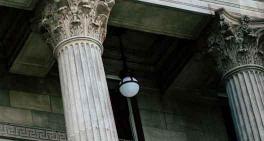Supreme Court adopts new rules for cell phone tracking
Legal Outlook
The Supreme Court says police generally need a search warrant if they want to track criminal suspects’ movements by collecting information about where they’ve used their cellphones. The justices’ 5-4 decision Friday is a victory for privacy in the digital age. Police collection of cellphone tower information has become an important tool in criminal investigations.
The outcome marks a big change in how police can obtain phone records. Authorities can go to the phone company and obtain information about the numbers dialed from a home telephone without presenting a warrant. Chief Justice John Roberts wrote the majority opinion, joined by the court’s four liberals. Roberts said the court’s decision is limited to cellphone tracking information and does not affect other business records, including those held by banks.
He also wrote that police still can respond to an emergency and obtain records without a warrant. Justices Anthony Kennedy, Samuel Alito, Clarence Thomas and Neil Gorsuch dissented. Kennedy wrote that the court’s “new and uncharted course will inhibit law enforcement” and “keep defendants and judges guessing for years to come.”
The court ruled in the case of Timothy Carpenter, who was sentenced to 116 years in prison for his role in a string of robberies of Radio Shack and T-Mobile stores in Michigan and Ohio. Cell tower records that investigators got without a warrant bolstered the case against Carpenter. Investigators obtained the cell tower records with a court order that requires a lower standard than the “probable cause” needed to obtain a warrant. “Probable cause” requires strong evidence that a person has committed a crime.
The judge at Carpenter’s trial refused to suppress the records, finding no warrant was needed, and a federal appeals court agreed. The Trump administration said the lower court decisions should be upheld. The American Civil Liberties Union, representing Carpenter, said a warrant would provide protection against unjustified government snooping. The administration relied in part on a 1979 Supreme Court decision that treated phone records differently than the conversation in a phone call, for which a warrant generally is required.
In a case involving a single home telephone, the court said then that people had no expectation of privacy in the records of calls made and kept by the phone company. That case came to the court before the digital age, and the law on which prosecutors relied to obtain an order for Carpenter’s records dates from 1986, when few people had cellphones. The Supreme Court in recent years has acknowledged technology’s effects on privacy. In 2014, the court held unanimously that police must generally get a warrant to search the cellphones of people they arrest. Other items people carry with them may be looked at without a warrant, after an arrest.
Related listings
-
Police shooting of boy spurs more protests, appeals
Legal Outlook 06/24/2018Protesters demonstrated Friday for a third day over the fatal police shooting in Pennsylvania of an unarmed black teen fleeing a traffic stop as they sought to get the attention of a nation engrossed by the immigration debate, and to pressure officia...
-
NY high court nixes Trump's bid to delay defamation suit
Legal Outlook 06/16/2018New York's highest court on Thursday turned down President Donald Trump's latest bid to delay a defamation suit filed by a former "Apprentice" contestant who accused him of unwanted groping and kissing.The ruling by the state Court of Appeals didn't ...
-
Polish court rules against man who wouldn't serve LGBT group
Legal Outlook 06/12/2018Poland's Supreme Court has ruled against a businessman who refused to print posters for an LGBT business group because he did not want to "promote" the gay rights movement. The country's top court said it was upholding the ruling of a lower court. Th...

Chicago Business Fraud Attorney
Business Fraud can take many forms. In the broadest terms, a fraud occurs when someone intentionally deceives others for personal gain. Many times business fraud is harmful and recovery is necessary. Losing your personal or business’s assets can devastate your entire life. Contact Roth Law Groupto receive help on restoring your business to normalcy before you were victimized with fraud. Business fraud cases can involve multiple people and complicated schemes aimed at deceiving the public, auditors, investigators, or others. Whether you are dealing with corporate fraud or commercial fraud, we can step in and fight back to receive compensation that you deserve.
At Roth Law Group we are devoted to prosecuting and defending the legal rights of individuals and small businesses, as either plaintiff or defendant. Proving fraud can be extremely difficult. To have a successful business fraud case, one must prove that the defendant purposefully set out to defraud the victim. Fraud cases are being investigated more aggressively than ever. With increasing federal regulation and scrutiny of corporate practises, many individuals and businesses find themselves the subject of business fraud investigations.




